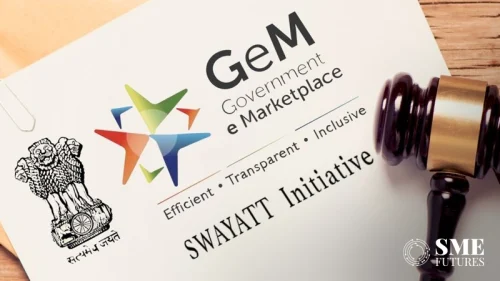A new study has revealed the extent to which Covid-19 has transformed the way that FTSE 250 companies will use workspaces in the future.
Research from IWG, the world’s largest operator of commercial office space, shows that three times the number of FTSE 250 companies are looking to use a hybrid office model compared to those looking to carry on in the same way as pre-pandemic.
The past year has transformed the way organisations operate, with companies across the globe realising that a workforce can be highly engaged and productive while utilising a hybrid model of working: at home, in a local office, and occasionally at a corporate HQ. IWG predicts that the future of work will revolve around the concept of a 15 Minute Commute, with all key amenities within a short journey from home.
Of the 501 FTSE 250 businesses leaders surveyed in the UK, a third (32 per cent) said their entire workforce currently operates remotely while two in five (40 per cent) say they have become more accepting of this flexible way of working to allow the likes of parenting or exercising during day light hours.
The future is flexible
Many FTSE 250 organisations have already moved to a more decentralised structure, operating with a ‘hub and spoke’ model. IWG has added half a million users to its network so far this year with a further million in the pipeline. In March IWG penned its largest ever deal, with Nippon Telegraph and Telephone Corporation, for its 300,000 employees to work from any of IWG’s 3,500 workspaces globally. This followed number of similar large enterprise deals such as one with Standard Chartered for its 95,000 employees.
The survey results show that other businesses are likely to follow suit. Only 13 per cent predict that their workforce will return to existing offices full-time by the end of the year. As a result, businesses are re-assessing their office space, with 38 per cent downsizing across the board and 42 per cent looking to either move to or invest in a shared office.
Escape the city
The pandemic is also causing a shift away from city centre offices with almost half (49 per cent) of businesses considering moving to areas where their workforce typically live. IWG’s research also found that a work base closer to home is a long-term priority for workers who want to continue with the reduced commute and increased family time they experienced in 2020. In fact, 77 per cent of employees say a place to work closer to home is a must-have for their next job move.
15 Minute Commute
While urban planners have long championed the 15 Minute City, IWG predicts that this change in attitudes means that the shift to hybrid working is well and truly underway, having seen interest in local and regional offices increase. The 15 Minute Commute is set to become a reality across the UK and to help bring this to life, IWG has partnered with architecture firm B&H to show what the reality might look like in Brighton in the UK and Washington DC in the US.
Mark Dixon, Founder and CEO of IWG says, “The pandemic has proven the ability of global workforces to work effectively in different ways and in different places. Our research shows that hybrid working will continue to be very popular with employees and businesses.
“Employees have realized that hours have been wasted commuting to an office that they don’t need to be in, whilst businesses have seen that a hybrid model not only means happier and more engaged employees, but also significant cost savings. This shift also has the potential to transform local economies; in 2019 we forecast that over the next 10 years local economies were set to benefit from £12 billion as a result of the growth in hybrid work patterns. The pandemic has not only accelerated this trend but likely increased that figure.”
“The continued demand to work closer to home in the heart of communities will make the 15 Minute Commute a reality across the UK as well as globally.”
In the last two years, almost all new IWG centres have been opened in non-city environments and regions away from major urban areas. Compared to pre-pandemic, demand for IWG office space in suburban areas rose by 32 per cent in the first quarter of 2021. Interest in rural office space increased by 20 per cent over the same period.
IWG provides flexible workspace in convenient locations alongside industry-leading technology, enabling teams to collaborate better and more seamlessly. IWG also offers shorter lease commitments, thereby allowing for ultimate flexibility.
Doug Demers, Managing Principal at B+H commented, “Over the last year, the widespread shift to remote working for many has resulted in a newfound appreciation for our immediate neighbourhoods. People want desirable amenities and essential services that they can easily access during a working day, but there is also an increasing appreciation for the things that are often missing such as green spaces and places to collaborate, or hubs to meet and work with colleagues locally.
With some creative repurposing and strategic planning, the 15 Minute City can become a reality across the world and is already evolving in many places. Our illustration of Brighton clearly shows how the city is already primed to be able to offer its residents everything they need to work and live there, within 15 minutes from their front door.”











